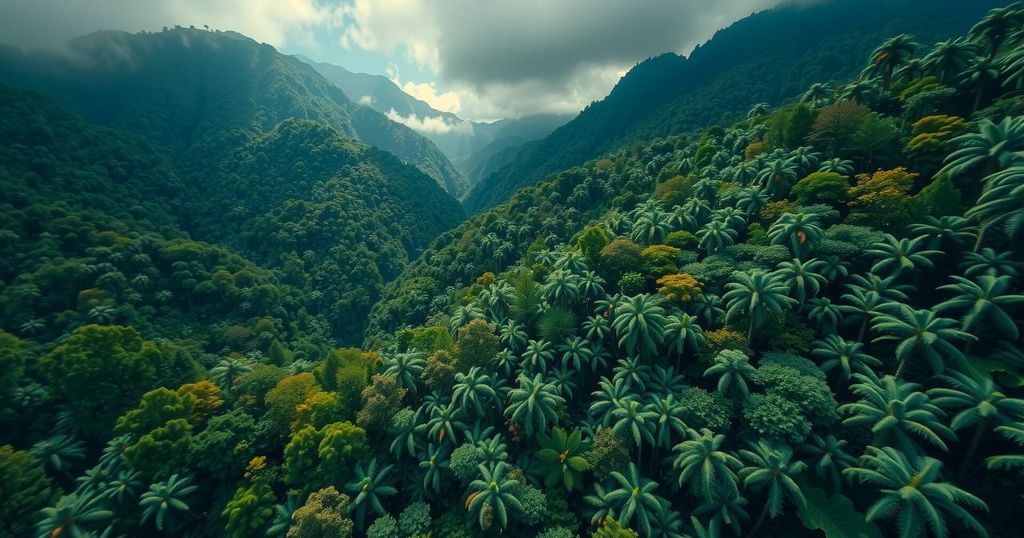Forests are vital for biodiversity and climate regulation. Key nations such as Russia, Brazil, and Canada play important roles in forest conservation, with their vast areas significantly impacting global ecosystems. The article also discusses the growing trend of ecotourism, emphasizing the need for sustainable travel practices to preserve these irreplaceable natural resources while supporting global conservation efforts.
The world’s forests are crucial in the fight against climate change, serving as significant reservoirs of biodiversity and carbon storage. According to the 2024 UN Food and Agriculture Organization-Forest Resources Assessment, a handful of countries, including Russia, Brazil, and Canada, significantly contribute to global forest coverage. Russia, with its extensive boreal forests, plays a vital role in carbon sequestration, while the Amazon rainforest in Brazil is a rich biodiversity hotspot facing dire threats from deforestation. Canada’s boreal forests are pivotal in conservation efforts, showcasing the importance of protecting these natural resources for future generations. The forests in the United States display remarkable diversity and have been safeguarded through various conservation initiatives, despite challenges such as wildfires. Meanwhile, China’s reforestation initiatives have led to significant ecological restoration, supporting endangered species and combating desertification. The growing recognition of these forests’ ecological relevance has stimulated a rise in ecotourism, with travelers increasingly seeking experiences that promote sustainability. However, it is imperative to navigate tourism responsibly to ensure these ecosystems remain protected. The potential of forests to contribute to global biodiversity and climate action is immense, reinforcing the necessity for ongoing conservation efforts.
Forests cover a significant portion of the Earth’s land, playing an essential role in sustaining biodiversity and regulating the climate. The current narrative surrounding forest conservation has been driven by alarming rates of deforestation and habitat loss, which threaten the delicate balance of ecosystems worldwide. The 2024 FAO report highlights the importance of certain countries and their forests in mitigating climate change by acting as carbon sinks and preserving wildlife. This article examines the role of major global forests in biodiversity conservation, their impact on climate change initiatives, and the intersections with global travel trends that promote sustainable practices.
In summary, the world’s largest forests are not only bastions of biodiversity but also pivotal in combating climate change. Nations such as Russia, Brazil, and Canada play critical roles in conserving these vital ecosystems, while the increasing emphasis on ecotourism underscores the need for sustainable practices in travel. It is essential to recognize and protect these natural resources to ensure their availability for future generations, as they are integral to maintaining ecological balance and supporting life on Earth.
Original Source: www.travelandtourworld.com






